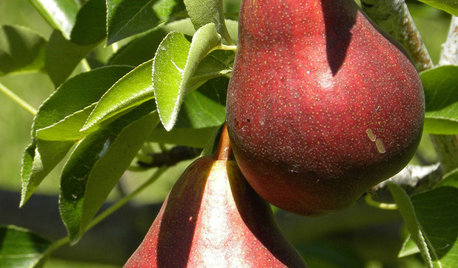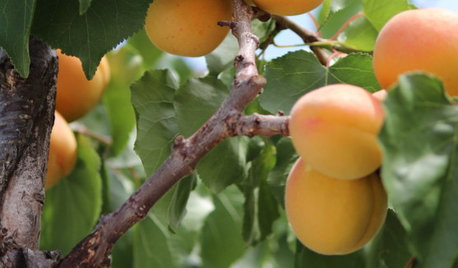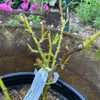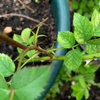Grafting onto unknown rootstock?
jenniferinfl
11 years ago
Related Stories

EDIBLE GARDENSHow to Grow Your Own European and Asian Pears
Try these trees for their good looks, delicious fruit and wide range of sizes — plus you can espalier them
Full Story
WINTER GARDENINGPruning Secrets for Exquisite Roses
Encourage gorgeous blooms year after year with this time-tested advice on how to prune your rosebush in winter for health and shape
Full Story
FARM YOUR YARDIf You Have Room for Only One Fruit Tree ...
Juice up a small garden with one of these easier-care or worth-the-effort fruit trees for a mild climate
Full Story
ARCHITECTUREThink Like an Architect: How to Pass a Design Review
Up the chances a review board will approve your design with these time-tested strategies from an architect
Full Story
GARDENING GUIDES6 Ways to Grow Edibles in Small Places
No big backyard? Join in the grow-your-own fun with these small-space ideas for planting vegetables, fruits and herbs
Full Story










roseseek
jerijen
Related Professionals
Allen Landscape Architects & Landscape Designers · Norfolk Landscape Architects & Landscape Designers · Fort Lee Landscape Architects & Landscape Designers · East Patchogue Landscape Architects & Landscape Designers · Norwood Landscape Contractors · Coeur d'Alene Landscape Contractors · Ellicott City Landscape Contractors · Firestone Landscape Contractors · Fort Myers Landscape Contractors · Miller Place Landscape Contractors · Newberg Landscape Contractors · Sammamish Landscape Contractors · West Orange Landscape Contractors · West Orange Landscape Contractors · Antioch Landscape ContractorsjenniferinflOriginal Author
thonotorose
jaxondel
jacqueline9CA
jerijen
jenniferinflOriginal Author
jaxondel